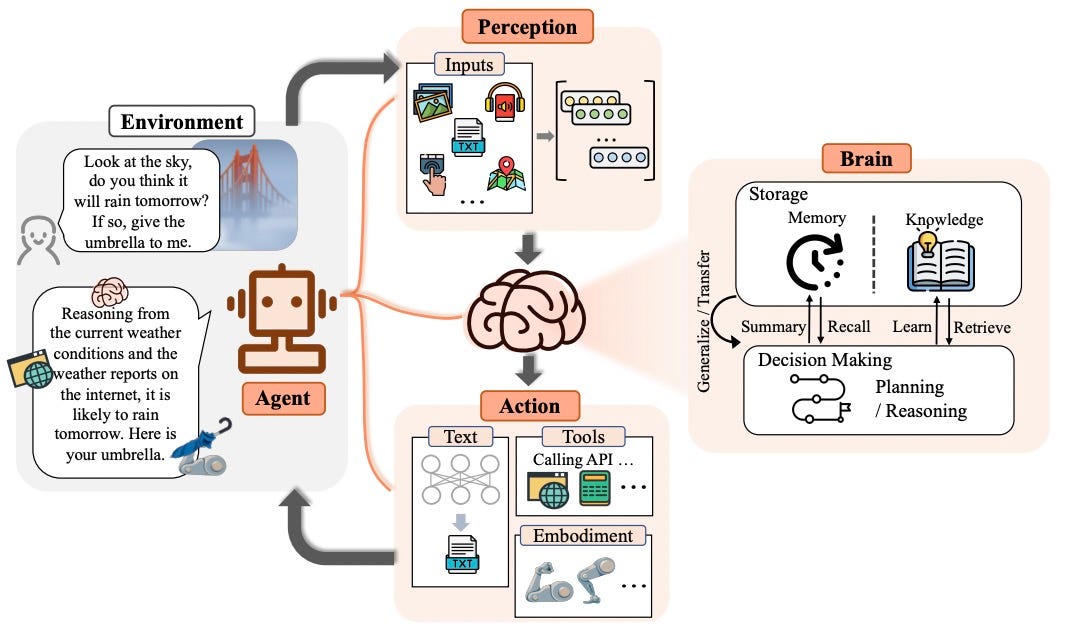Best Suggestions For Choosing An AI Agent Website For Business
Wiki Article
Ten Ways That Businesses Can Utilize Ai Agents To Automate The Invoice Processing Of Financial Operations.
Here are 10 ways businesses can use AI agents to automate invoice processing in financial operations:
1. Automated extraction of data
AI agents extract crucial details from invoices, including:
Vendor name the invoice number, date and the amount.
Line items and tax details are determined by Optical Character Recognition.
2. Intelligent Invoice Matching
AI validates bills by:
Then, you can compare them against contract agreements, purchase orders as well as delivery receipts.
Identifying discrepancies & flagging exceptions in the result of a review.
3. Real-Time Invoice Validation
AI ensures accuracy:
Check the invoices carefully for any errors.
Validating compliance to business rules and tax regulations.
4. Approval processes can be streamlined
AI automatizes the approval process:
Routing invoices for approval according to rules that have been predefined.
Reduce delays by sending automated reminders to the approvers.
5. Automated Payment Scheduling
AI schedules payments by:
Make use of early payment discount by improving your payment schedule and looking at the due dates.
In order to avoid late payment penalties, you must ensure prompt payments.
6. Fraud Detection & Prevention
AI enhances security by:
Finding out unusual patterns, like overinflated prices or unfamiliar vendors.
Notifying customers of fraudulent invoices and requesting an investigation.
7. Integration with Accounting Systems
AI syncs data by:
Automated updates of financial systems including ERP and accounting software.
Reduce the manual data entry process and ensure accuracy of all systems.
8. Intelligent Cost Allocation
AI categorizes expenses by:
Assign invoice amounts based on the cost centers or project codes.
Maintaining compliance with internal budgeting regulations.
9. Real-Time Reporting and Analytics
AI generates insights in:
Dashboards that provide metrics such as the processing time for invoices that are outstanding as well as cash flow.
Predictive analytics can help you identify patterns and improving decision-making.
10. Reducing manual effort
AI minimizes human intervention:
Automating repetitive tasks like the logging of invoices and tracking approvals.
Allowing employees to concentrate on financial planning and strategic activities.
Businesses can boost the management of cash flows by automating invoices processing with AI agents. This reduces errors and increase efficiency. Follow the best AI agent for Customer Support for website tips including AI agent for contract management, AI agent for risk management, AI agent for discount verification, AI agent for ticket resolution, AI agent for employee onboarding, AI agent for lead data enrichment, AI agent for payment management, AI agent for license management, AI agent for customer credit monitoring, AI agent for customer inquiries and more.

Ai Agents For Cash Flow Prediction: 10 Ways To Apply Them In Your Business
Here are 10 ways companies can benefit from AI agents to predict the results of cash flow analysis in finance operations:
1. Forecasting Revenue Streams
AI anticipates the cash flow coming in by:
Examining historical trends in revenue and customer payment behavior and data on sales.
The seasonal patterns can be identified and projected to help you determine your revenue projections for the future.
2. Predicting delay in payments
AI forecasts cash-flow disruptions by:
Examining the payment history of customers and behavior.
High-risk customers at risk of being flagged as high-risk and who are likely to be late with payments, default or fail.
3. Optimizing Expense Management
AI predicts Cash Flows that are due to expire by:
Examining recurring expenditures including vendor payment, operating costs.
Indicating the possibilities to cut expenses or to optimize.
4. Scenario-Based Cash Flow Simulations
AI assists decision-making by:
You can run "what-if?" scenarios to see what happens in the event that you alter the sales volume or payment conditions.
Assisting companies in planning cash flow in the best scenarios, the worst, and the most probable scenarios.
5. Real-Time Cash Position Monitoring
AI offers real-time information through:
A data aggregator which can combine information from invoices, bank statements, and ledgers.
The financial position of your business can be seen in real time which allows you to take immediate action.
6. Dynamic Budgeting
AI can help allocate funds more efficiently through:
Calculating short-term as well as longer-term cash flow.
Recommending budget adjustments to ensure the best utilization of resources.
7. Proactive debt management
AI supports debt management by:
Forecasting of cash flow and loan repayment schedules.
Suggesting the best times to obtain or repay the loan.
8. Finding Liquidity Deficits
AI alerts companies to potential shortfalls.
Future cash inflows and outflows to pinpoint areas that are in deficit.
Offer suggestions for closing gaps, for instance by securing funds in the near term.
9. Enhancing Customer Credit Management
AI helps to improve the stability of cash flows by:
Examining the creditworthiness of clients and changing the terms of payment.
Reduce the risk of bad debts and cash flow interruptions.
10. Advanced Reporting with Insights
AI provides actionable analytical data through:
Create accurate cash flow forecasts with variance reports.
The key metrics are highlighted including days outstanding on sales (DSO) and cash conversion cycle.
By using AI to carry out predictive analytics, businesses can improve their cash flow management and lessen uncertainty. They are also able to make more informed financial decisions, which will help to ensure stability and growth. Take a look at the pro AI agent for Ticket Escalation Management for site guide including AI agent for contract drafting, AI agent for sales operations, AI agent for billing compliance management, AI agent for vendor management, AI agent for variance analysis, AI agent for contract compliance, AI agent for technical support, AI agent for resume screening, AI agent for help desk support, AI agent for supplier onboarding and more.

Ai Agents Are Able To Help Companies To Comply With The Rules And Regulations.
Here are 10 ways that businesses can use AI agents to adhere to the rules and regulations of finance operations:
1. Automating the reporting of regulatory requirements
AI agents can simplify reporting by:
Automatically generating compliance reports that are required by regulatory agencies (e.g., SEC filings and tax reports, as well as financial disclosures).
Making sure that all documents required are submitted on time minimizes the chance of fines due to late filings.
2. Monitoring Transactions in Real Time
AI assures compliance with anti-money-laundering (AML) and Know-Your-Customer (KYC), by:
Monitor financial transactions constantly to detect suspicious behavior.
The flagging of transactions that could violate compliance rules like large or unusual transactions, or cross-border transactions which require extra investigation.
3. Automated Audits and Validation of Data
AI agents aid audits:
Automated checks are performed to verify conformity with internal policies and external regulations.
Check and verify the accuracy of financial information and report any the possibility of discrepancies causing issues with compliance.
4. Maintaining Data Security and Privacy
AI can help meet data protection regulations (e.g., GDPR) by:
Encrypt sensitive customer data and transactional information to ensure safe storage and transfer.
Automatically managing consent preferences to ensure that customer's personal information is only used in compliance to legal agreements.
5. AI-Powered Fraud Recognition
AI is a tool that helps to prevent fraud by:
Analyzing patterns of transactions is a continual process that seeks out irregularities and fraud that could be not in compliance with financial regulations.
Using machine learning algorithms to identify and predict potential fraud risk, and help minimize any violations of financial or legal regulations.
6. Regulatory Change Detection
AI helps businesses remain on top of the game through:
Monitor changes in financial regulations, including taxes, reporting requirements, and industry standards.
Automated updating of internal processes and systems in order to stay compliant to regulatory changes.
7. KYC Compliance (Know Your Customer KYC Compliance (Know Your Customer Know Your Customer)
AI assists in compliance by:
Automating customer identification and verifying procedure to make sure that companies adhere KYC rules.
Comparing customer behaviors with known risk profiles can aid in identifying money laundering.
8. Risk Assessment and Management
AI improves compliance through:
Assessing and predicting compliance risk continuously using historical data such as financial transactions, external factors, etc.
Recommending steps to reduce identified risks and ensure conformity to the regulatory frameworks.
9. Analyzing contracts and documents
AI increases compliance through:
The use of natural language processing to aid in the analysis of contracts, agreements, and legal documents.
In assisting businesses to avoid violating legal obligations by automatically identifying clauses that may conflict with them.
10. Tax Compliance Automation
AI helps simplify the tax compliance process by:
Automating the calculation and filing of tax returns making sure that companies comply with the tax laws and deadlines.
Analyzing transactions data in order to discover tax opportunities like exclusions, deductions, or other tax advantages while avoiding mistakes that could result in penalties.
By leveraging AI agents in these areas, organizations can ensure that they are in strict compliance with regulations, decrease the risk of errors or omissions, and remain in front of any regulatory changes. AI's capacity to automate, monitor and change to meet the demands of changing times can be a powerful tool for regulatory adherence in financial operations. View the expert AI agent for Intellectual Property for blog guide including AI agent for reconciliation, AI agent for service survey collection, AI agent for payroll, AI agent for investment strategy, AI agent for ticket reopening monitoring, AI agent for hipaa compliance monitoring, AI agent for customer ticket management, AI agent for regulatory reporting, AI agent for employee benefits management, AI agent for employee onboarding and more.
